How to spot spam Facebook posts to avoid accidentally sharing scams
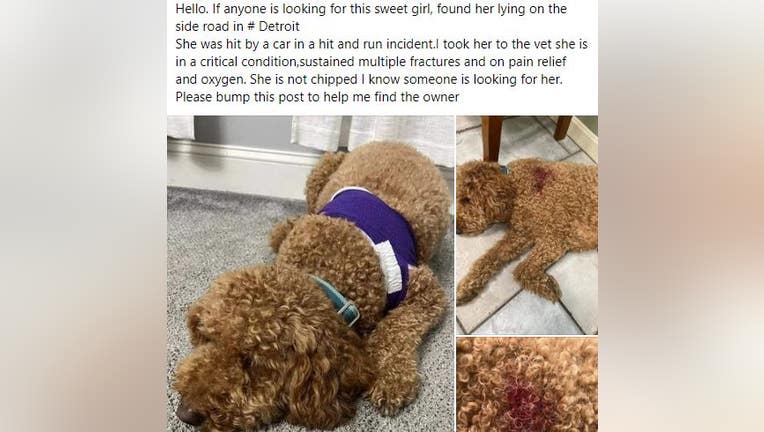
DETROIT (FOX 2) - Scammers are using fake stories to prey on victims and trick them into sharing scams on Facebook.
This scam has been going on for a while, but it continues to trip people up by using sad posts to appeal to their emotions.
How it works
You see a Facebook post with an emotional story, so you share it on your profile. More and more people share this post until it has a far reach. When this happens, the scammer edits the post to show a scam with phishing links.
There are several variations of this post that are popular right now. Some spotted on Facebook in recent days include a stolen trailer, a child and a dog who ran away and are missing, and a found injured dog.
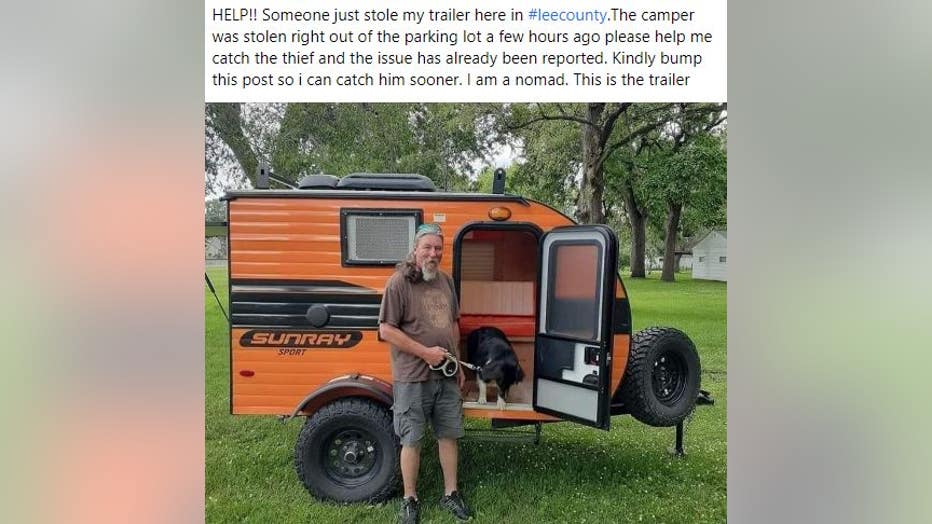
These posts are commonly edited to later show a contest with a link to enter or a home for rent with a link to apply. The scammers tend to wait a few days or weeks before making the edit. Since you shared the original post, the edited one is on your profile, advertising the scam to your friends, and you may have no idea.
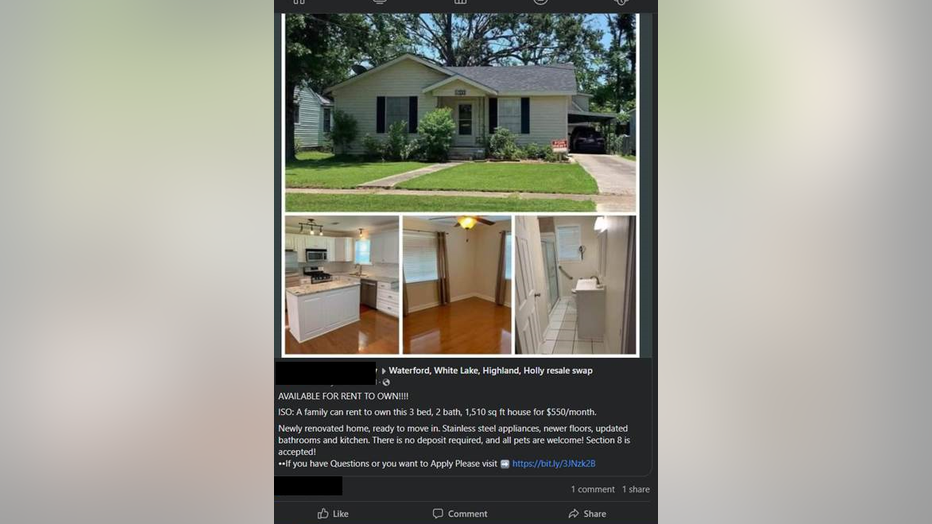
What to look for
Many missing pet posts are legitimate, so don't let this scam stop you from sharing posts, but look for signs of a spammer before hitting share.
These scam posts are found in groups that are public, and the original poster will usually turn the comments off.
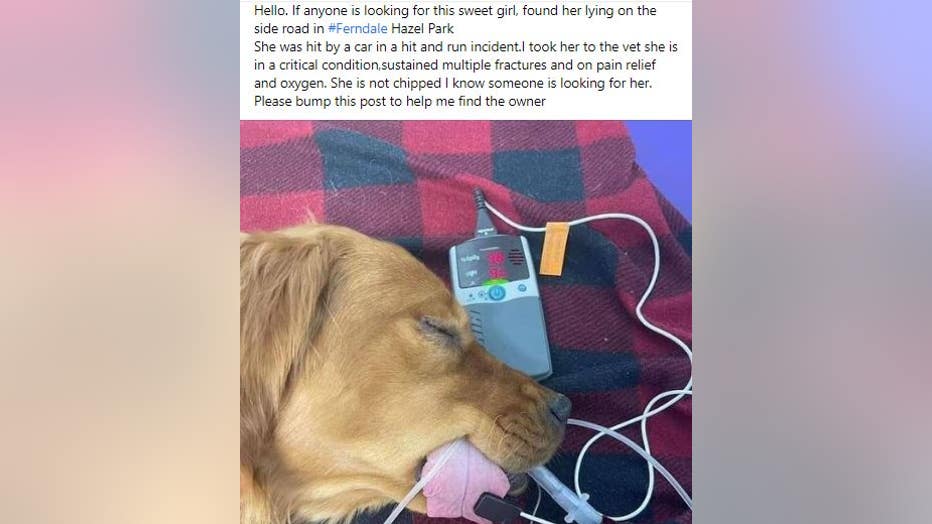
Speaking of the poster – take a look at their profile. How new is the profile? How many friends does the person have? Where does it say they live? This information could offer clues as to if the profile is legitimate.
Also, many of these missing posts are copied and pasted with only the location changed, so if you aren't sure, look up the post and see if it's been posted by other people in other areas.
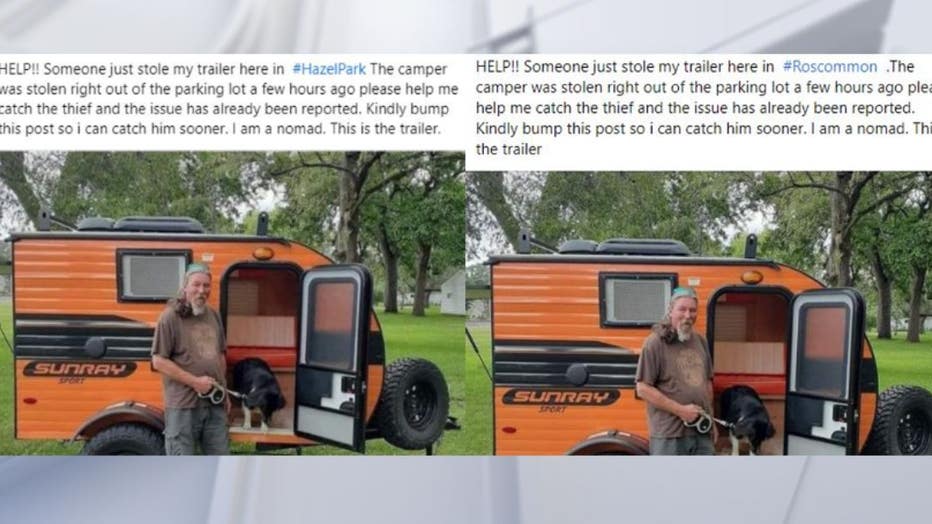
Same photo, same story posted by different people naming different cities
One that has been making its rounds for the past few months is about a child with autism running off with a dog named Hank. The photo is either a boy and a dog, or a boy and a girl with a dog. A search of the text brings up dozens of posts with the same few photos, all from different posters and posted in groups around the country.
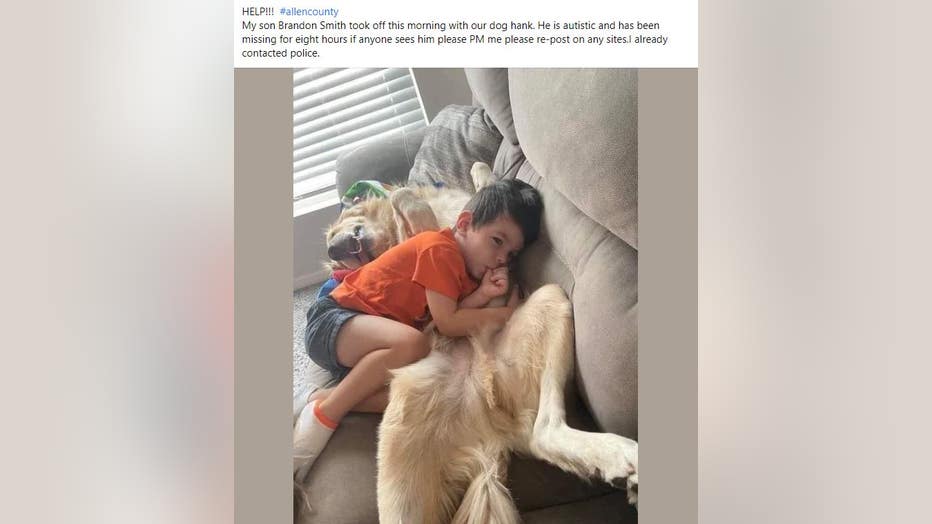
The posts are vague - they always include a city or county or not an exact area where the so-called missing child left from. If a child is reported missing from your area in a post, check the news and social media accounts of nearby law enforcement agencies to see if they are reporting the missing child.
What to do if you spot one of these posts
If you run into a similar post and believe it may not be legitimate, do not share it and report it to Facebook and the BBB.
If you have already shared the post, delete it from your profile.

